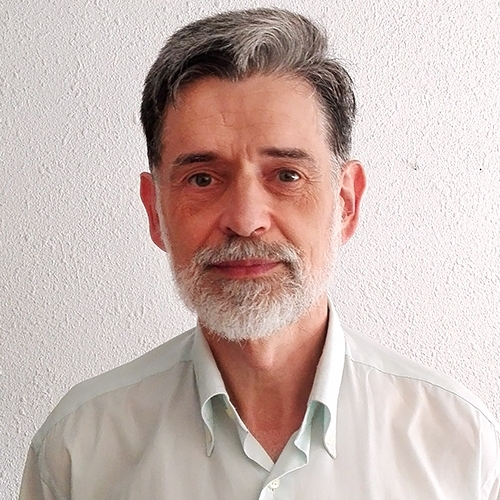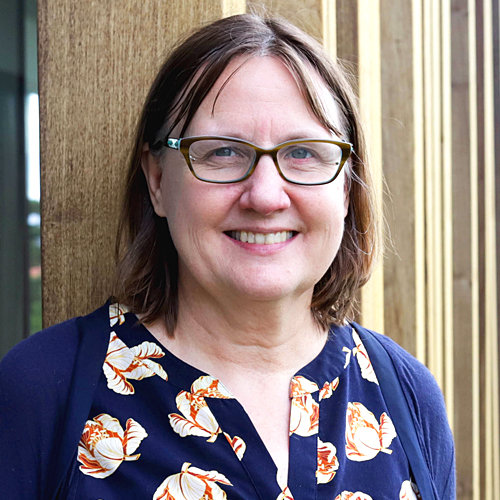 IBCLC Detailed Content Outline: Techniques Focused CERPs - Section VI
IBCLC Detailed Content Outline: Techniques Focused CERPs - Section VI
Access CERPs on Techniques for the IBCLC Detailed Content Outline recertification requirements. Enjoy convenient on-demand viewing of the latest Techniques focused IBCLC CERPs at your own pace.

Disorganized Infant Feeding: Beyond Suck, Swallow, Breathe

Jada Wright Nichols is an Atlanta-based women’s wellness consultant. She graduated from Tennessee State University, with a bachelor’s degree in speech pathology and audiology. She has a master’s degree in occupational therapy and has worked in a variety of rehabilitation settings, across the life-span.
Additionally, she is a massage therapist, lymphedema therapist, holistic nutritionist, birth and postpartum doula, yoga instructor, and international board-certified lactation consultant (IBCLC). She is a lactation consultant at Children’s Healthcare of Atlanta, and the owner of Blossom Health and Maternal Wellness, and Bloom Early Intervention, which provide in-home and virtual services for new and expectant families, as they navigate various aspects of parenting, access, and equity.
Suck swallow breathe coordination is one of the earliest and most meaningful motor milestones of a developing infant. That level of coordination varies between breastfeeding and bottle feeding. Too frequently, if there are any challenges while feeding at the breast, bottle feeding is recommended, often without a complete assessment around the challenge itself. Infant feeding may be disorganized for one of a variety of contributing factors. It is important to be able to identify one or more of those factors, and to facilitate a solution, which may include seeking the insight and intervention of another allied health professional. Honing observation skills, incorporating diagnostic tools, and coordinating feeding assessments and protocols with specialists assist in preserving the initial breastfeeding relationship, with equity.

Establishing & Maintaining Milk Production When Exclusively Pumping

Kimarie Bugg is currently a Doctor of Nursing Practice student and is President and CEO of Reaching Our Sisters Everywhere (ROSE), a National nonprofit corporation developed in 2011 to address breastfeeding inequities in the African American community. Kimarie previously worked for Emory University, School of Medicine, as a nurse practitioner. She is a member of the faculty for CHAMPs, a Baby Friendly Hospital Initiative, and chair of the nominating committee of United States Breastfeeding Committee. She also provides training for healthcare providers and community transformers nationwide. She completed a Community Health Leadership Program, within the Satcher Health Leadership Institute at Morehouse School of Medicine that stressed best practices to provide global health equity and eliminating health disparities through action-oriented projects. In 2016, Kimarie received a Legacy Award from the United States Breastfeeding Committee for her work in the breastfeeding arena for 38 years. She believes that Truth, Racial Healing and Transformation can take place in marginalized communities, starting with Breastfeeding. Kimarie lives in the Atlanta area with her husband, Dr. George W. Bugg Jr, a neonatologist and they are the parents of 5 adult children.
Topic: Reaching Our Sisters Everywhere (ROSE) - [View Abstract]
In this presentation, you will learn about working with mothers' who are struggling to maintain their milk supply when infant is unable to latch or they have an infant in the NICU or wanting to plan ahead and maintaining a supply perhaps while they are either returning to work or school.

Feeding Difficulties: A Look at High Risk Populations

Amber Valentine is a Speech-Language Pathologist who graduated from the University of Kentucky with her MS in Communication Disorders. She is a Board Certified Specialist in Swallowing and Swallowing Disorders and an International Board Certified Lactation Consultant. She worked for Baptist Health Systems, Inc for 8 years before moving to Florida where she worked for Wolfsons Children’s Hospital and Mayo Florida. She is now back in Kentucky working for Baptist Health Lexington. She has experience in adults and pediatrics with feeding and swallowing difficulties including: bedside swallow evaluations, Modified Barium Swallow studies, FEES, and pediatric feeding evaluations including NICU. She has provided guest lectures for the University of Kentucky and the University of Louisville on feeding and swallowing topics. She has presented at the hospital level, local, state, national, and international levels on pediatric feeding/swallowing and breastfeeding.
Lillian Scott is a speech-language pathologist and certified lactation counselor employed by Baptist Health Lexington in Lexington, Kentucky. She received master’s degree in Speech-Language Pathology from Gallaudet University. She received dual bachelor degrees in Communication Sciences and Disorders and Special Education from the University of Kentucky. She has worked with pediatrics and adults in the areas of speech, language, and swallowing. She has NICU, Mother/baby, and outpatient clinical experience working with feeding dyads of breast and bottle feeding infants. In the area of adults and pediatrics, she has experience with clinical swallowing evaluations and Modified Barium Swallow Studies. She has experience with adult Fiberoptic Endoscopic Evaluations of swallowing (FEES). Her interest is in successful feeding by mouth for infants with complex medical histories and promoting breastfeeding in cultures that are not likely to receive the supports for feeding difficulties due to knowledge, costs, and/or access.
Feeding is the most complex task of infancy, even in term babies with no complications. There are many diagnoses, conditions, syndromes, and co-morbidities that can impact feeding in neonates and infants. This talk will briefly highlight many of those, but we will focus on three specific populations of interest –Neonatal Abstinence Syndrome, Infants of Diabetic Mothers, and Downs Syndrome. We will discuss the specific implications these conditions can have on feeding, why these infants may have difficulty, and the classic symptoms one could expect to see. The differences between delayed and disordered feeding will also be addressed. Strategies and adaptions for breast feeding will be discussed. Positioning and external strategies will be explained. Case studies will be shared at the end of the presentation.

View Details / Enroll

First Touch, First Food, First Hour …in a mother’s hands

Dr. Jane Morton has had a long, fulfilling career as a general pediatrician, She has also had a long-standing interest in breastfeeding, from understanding its clinical benefits to practical solutions for mothers having difficulty in providing breastmilk to their infants. Over the years, she has conducted research on human milk and breastfeeding and has designed and implemented systems and policies to help breastfeeding mothers. She produced award winning videos on this topic, including “Breastfeeding: A Guide to Getting Started”, “A Preemie Needs His Mother: Breastfeeding a Premature Baby” and “Making Enough Milk, the Key to Successful Breastfeeding”. These have been translated and widely used in thousands of hospitals to train both staff and new mothers. As an executive board member of both the Academy of Breastfeeding Medicine and the American Academy of Pediatrics Section on Breastfeeding, she enjoyed working to enlarge the footprint of breastfeeding, both nationally and internationally.
For a 5 year period, she joined the neonatology clinical faculty at Stanford to develop the Breastfeeding Medicine Program. In that position, she had the opportunity to design a nationally recognized educational program, conduct and publish original research on milk production and composition in mothers of very low birth weight infants, and publish a study with the AAP on the efficacy of a breastfeeding curriculum for physician residents in training. She was an advisor to the California Perinatal Quality Care Collaborative, and was a key author of the toolkit “Nutritional Support for the Very Low Birth Weight Infant”. She co-authored the book Best Medicine: Human Milk in the NICU. She has published extensively and presented her original research and educational workshops internationally. She continues to teach at Stanford where she is an Adjunct Clinical Professor of Pediatrics, Emerita.
Topic: First Touch, First Food, First Hour …in a mother’s hands - [View Abstract]
The risk of early termination of breastfeeding typically relate to complications with a) attachment, b) breastmilk production, or c) the caloric intake of the infant. Simply put, A, B and C. Could hand expression taught in Labor and Delivery to every mother reduce early termination and the health, financial and emotional morbidity associated with breastfeeding complications in both low and high risk infants? This presentation will examine this question, focusing on the purpose of teaching early hand expression, the available science and the practice of integrating this technique into first hour care.


Carmela is a family medicine MD, bachelor´s degree in Public Health Education, and IBCLC since 2005. She is also a BFHI Evaluator and the co founder and past president of the Spanish Lactation Consultant Association (AECCLM). She works in a private Family Wellness Clinic, Raices, as person in charge of the lactation program, which includes two IBCLCs attending breastfeeding families and an extensive offer of breastfeeding training for health care professionals and breastfeeding peer counsellors. The team has trained over three thousand doctors, midwives and nurses from both the Spanish National Health Service and the private sector in Spain. She is a frequent lecturer at national conferences, and has also lectured internationally, both on-site and online. She is the author of several scientific papers on breast pain, mastitis and tongue tie. She is also the author of a breastfeeding/parenting book, “Amar con los Brazos Abiertos” (To Love with Open Arms). She is married to Carlos and they homeschool their four children.
Topic: Assessment and Management of Mastitis - [View Abstract]
Topic: Getting Milk Production off to a Good Start - [View Abstract]
Topic: Management of Chronic Breast Pain: Holistic Approach - [View Abstract]
Topic: The Art and the Science: A Critical Look at the Physiology and Management of Mastitis - [View Abstract]
The most frequent cause of weaning worldwide is mother´s feeling that she does not have enough milk or that her infant is hungry despite her efforts… and frequently this perception becomes a reality. What support systems and clinical strategies can we use to protect mother´s normal capacity for milk production?
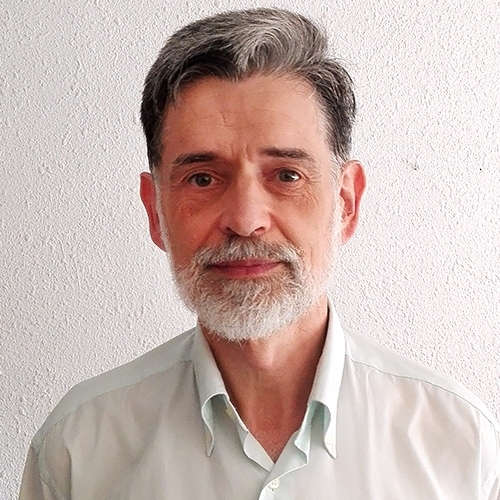

Carlos González was born in Zaragoza, Spain, in 1960. He is married and is the father of three children. In 1983 he graduated in medicine at the Autonomous University of Barcelona, and between 1984 and 1987 he studied pediatrics at the Hospital of Sant Joan de Déu in that city.
He is founder and president of ACPAM (Catalan Association for Breastfeeding) since 1991. Since this association he has directed and taught in more than 100 courses on breastfeeding for health professionals.
He is the author of several books, including My child won’t eat, Kiss me!, and Breastfeeding made easy.
He has lectured for professionals or general public in Germany, Andorra, Argentina, Austria, Bolivia,
Chile, Colombia, Costa Rica, El Salvador, Spain, United States, France, Greece, Guatemala, Honduras, Ireland, Israel, Italy, Luxembourg, Mexico, Panama, Paraguay, Peru, Poland, United Kingdom, Dominican Republic, Russia, Uruguay and Venezuela.
Since 1994, he has been a regular contributor to Ser Padres magazine , where he attends a nursing and child feeding office. He has also collaborated with other publications, such as the magazine Tu Baby, Mente Sana, Lecturas, the disappeared Solaica and the newspaper in Catalan Ara.
Inappropriate use of growth charts can cause familiar anxiety, unnecessary supplementation, early weaning, unnecessary testing and force-feeding. With half of the population below the mean, at least a 3% of the average weight of people are (and have to be) under the third percentile. Percentile lines are mathematical constructions, and do not represent the actual growth patterns of individual babies.

View Details / Enroll

How B.E.S.T. (Basic Evaluation of Structural Tension) Relates to Breast©

Judy Terwilliger is a Clinical RN Therapist with Pediatric experience for over 30 years. As lead therapist, researcher and educator in her proprietary form of functional mobility therapy (Functional Bowen™), she works with allied health care providers in the resolve of hidden structural barrier challenges for infants and children. Her collaborative, integrative team care approach sees many successes. She is committed to equipping families with the tools necessary in support of breastfeeding and enabling parents to participate in the resolve of their children’s structural challenges. She is a member of the National Society of Pediatric Nurses and was a nominee in the 2013 Clinical Excellence in Practice Award. She has been a speaker at the Northern California Placer County Breastfeeding Coalition, Imperial Valley Breastfeeding Summit and presented at the 2016 California Breastfeeding Coalition. Her professional memberships include: ABM Network, International Pediatric Integrative Medicine Network, IATP, and Breastfeeding USA. Judy is a licensed continuing education provider for the National Certification Board for Therapeutic Massage & Bodywork, California Board of Registered Nurses, The California Physical Therapy Association, and the International Board of Lactation Consultant Examiners.
This lecture/course is intended to familiarize the medical and allied health community in the recognition of the often-overlooked muscle-related structural barriers to breastfeeding. It provides a discussion of clues to the predisposing factors of these barriers and explores their affect on infant "functional mobility" as it relates to the achievement of successful breastfeeding. It is intended to improve the clinician’s assessment skills as they work with the mother/infant dyad in resolving breastfeeding difficulties/dysfunctions by development of insight into these often hidden and profoundly destructive structural manifestations. Recognition of these barriers with an emphasis on self-help techniques and when/who to refer parents/caregivers to for help, together with how to best meet their teaching/training needs across cultural barriers, is discussed. The ultimate purpose is the achievement of insight to improve the clinician’s evaluation process, better enabling them to promote, enhance and even save the breastfeeding experience of the families served.

View Details / Enroll

View Details / Enroll
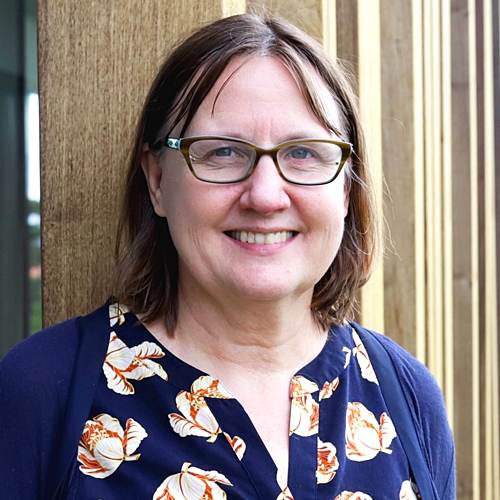

Ruth Lucas, PhD, RNC, CLS, received her Bachelor of Science in Nursing from George Mason University (1986) and her Doctor of Philosophy of Science (2011) from the University of Illinois at Chicago. Based on 20 years of supporting women and infants to initiate breastfeeding, her research focuses on the biobehavioral mechanisms of breastfeeding, such as breast and nipple pain. Dr. Lucas and her team conducted a pilot randomized control trial (RCT) as part of the Center for Accelerating Precision Pain Self- Management (CAPPS-M) (P20NR016605). The pilot RCT tested the feasibility, acceptability, and efficacy of a breastfeeding self-management (BSM) intervention for breast and nipple pain during breastfeeding and found the BSM intervention significantly reduced breast and nipple pain and is associated with pain sensitivity polymorphisms. Her published work describes management of pain during breastfeeding, a clinical indictor of infant breastfeeding behaviors, and a biomedical device to measure breastfeeding in real time.
Topic: Promoting Self-Management of Breast and Nipple Pain for Women During Breastfeeding - [View Abstract]
Infant feeding behavior is a complex neurodevelopment behavior. Infant feeding is compressed of infants’ latch and SuPPRT (sucking pressure pattern regulated over time) in both bottle and breastfeeding sessions. In preterm bottle feeding infants, the regulation of these two components is a measure of neurodevelopment. However, infants’ latch and SuPPRT in breastfeeding has not been explored. Dr. Lucas will review infants’ latch and SuPPRT during bottle and breastfeeding and explore how these differences make breastfeeding a more sensitive newborn neurodevelopmental measure. Finally, Dr. Lucas will propose why we should consider differences in infant latch and SuPPRT to be a neurodevelopmental infant measure.

View Details / Enroll
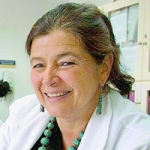
Kangaroo Mother Care Now and Then: 30 Years of KMC Clinical and Research Experience in a Developing Country

Dr Nathalie Charpak is currently the scientific coordinator and an attending paediatrician at the Kangaroo Mother Care program of the San Ignacio University Hospital. In addition, she is a founding member, senior researcher and director of the “Fundacion Canguro” in Bogotá, Colombia since 1994. Dr Charpak received her M.D. from the “Paris Sud” University and her paediatrician diploma from “Rene Descartes” University in Paris, France. She migrated in 1986 to Colombia where she validated her title as Paediatrician and begin in 1989 to work on the evaluation of the Kangaroo Mother Care (KMC) program. She is now a Colombian citizen. With several colleagues she founded in 1994 the “Fundacion Canguro” in Bogotá, an NGO devoted to research, teaching, training and direct medical care related to KMC method for premature infants that besides conducting large clinical trials on KMC has been actively disseminating the method mainly in low and middle income countries in Latin America, South East Asia, India, Africa and Eastern Europe. In 1996 in Trieste Italy she was among the group of international researchers, physicians and nurses who founded the International Kangaroo Network -INK- an international alliance devoted to collaborating, enhancing and disseminating the KMC method. Dr Charpak continues to work as an attending paediatrician in the KMC program and his current research interest is in integrative methods for summarizing and putting into action what is known about KMC in the form of evidence-based clinical practice guidelines. She is also recently involved as coordinator in conducting evaluations of long term (adolescents and young adults) neurodevelopment outcomes in preterm infants exposed or not exposed to KMC during the neonatal period.
The Kangaroo Mother Care (KMC) Method is primarily targeting the preterm and/or LBW infants once they are stabilized and adapted to extra-uterine life. KMC has three mayor components: kangaroo position (KP) or direct skin-to-skin contact between the mother and the baby; the kangaroo nutrition (KN) based on exclusive breastfeeding and the kangaroo discharge policies: early discharge in KP at home or in a KMC ward under strict follow up. KMC is a tool for humanization at all levels of neonatal care. There is sound scientific evidence for the effectiveness and safety of KMC in terms of mortality, early infectious morbidity, development, promotion and maintenance of breastfeeding. Also, there is evidence for the beneficial effects of KMC on establishing healthy bonding between mothers and infants. Many health professionals consider KMC as a means of protecting the immature brain when it is the most fragile and the results of our long term follow up are supporting this hypothesis.

View Details / Enroll


Catherine Watson Genna BS, IBCLC is an International Board Certified Lactation Consultant in private practice in New York City. Certified in 1992, Catherine is particularly interested in helping moms and babies breastfeed when they have medical challenges and is an active clinical mentor. She speaks to healthcare professionals around the world on assisting breastfeeding babies with anatomical, genetic or neurological problems. Her presentations and her writing are enriched by her clinical photographs and videos. Catherine collaborates with Columbia University and Tel Aviv University Departments of Biomedical Engineering on research projects investigating the biomechanics of the lactating nipple and various aspects of sucking and swallowing in breastfeeding infants. She is the author of Selecting and Using Breastfeeding Tools: Improving Care and Outcomes (Praeclarus Press 2009) and Supporting Sucking Skills in Breastfeeding Infants (Jones and Bartlett Learning 2008, 2013, 2017) as well as professional journal articles and chapters in the Core Curriculum for Lactation Consultant Practice and Breastfeeding and Human Lactation. Catherine served as Associate Editor of the United States Lactation Consultant Association’s official journal Clinical Lactation for its first seven years.
Topic: Breastfeeding Strategies for Tongue-tied Infants - [View Abstract]
Topic: Critical Assessment of Apparent Tongue-Tie - [View Abstract]
Topic: Introduction to Cervical Auscultation - [View Abstract]
Topic: Lactation Support for Infant Biomedical Challenges - [View Abstract]
Topic: Organization of tongue movements before and after frenotomy for posterior tongue-tie: an Ultrasound analysis - [View Abstract]
Topic: Positioning and Latch for Breastfeeding - [View Abstract]
Topic: Ultrasound Analysis of Sucking: Tongue-Tie and Confounders - [View Abstract]
Topic: Using Breastfeeding Supplementers - [View Abstract]
Infants with biologically based sucking problems can often breastfeed with specific lactation management and supportive techniques. This presentation provides an overview of some common medical problems that cause feeding difficulty and strategies that can help an infant with suboptimal sucking skills to feed more normally.












